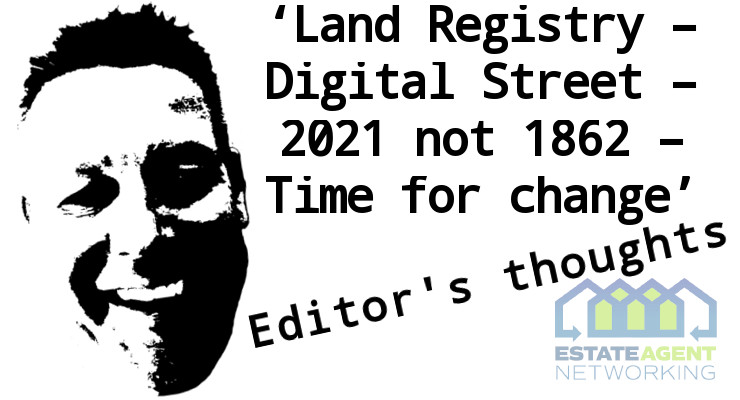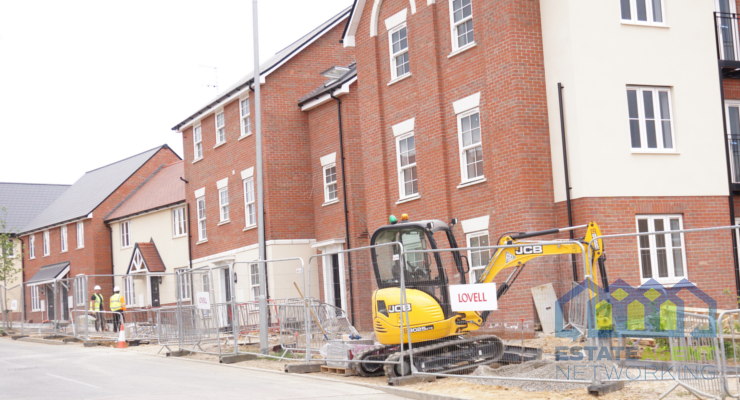Land Registry – Digital Street – 2021 not 1862 – Time for change
There has been a lot of ‘tinkering’ around the edges, but it is time for a deep dive into fixing the scattergun approach to transferring the title of a property from part A to party B. After all it can not be all that difficult can it?
An integral moving part, though sometimes grindingly slow is HMLR – Her Majesty’s Land Registry, with its head office Trafalgar House, in Croydon an imposing building if you are ever out that way.
And like many in the trenches over the years, I have more than once bemoaned the slowness and perceived inadequacies of HM Land Registry, when my pipeline of un-exchanged sales hinged on their ability to perform.
Now of course not depending on the sales of properties to keep Zara my faithful dog in the lifestyle she has been accustomed to, I have a much more enlightened view of HMLR through my heavily rimmed proptech/real estate analyst glasses.
In fact I am now an advocate of their present position and more specifically the focus they have put into their research and development project Digital Street. This collaborative initiative which has been running some years, and which anyone from the real estate sector in the UK can join in with is making spirited progress.
So, and here is a scary concept, maybe if estate agents want change to be faster – they take time out and support the Land Registry cause, as at present the Law Society, the Ministry of Housing, Communities and Local Government, HM Revenue and Customs, large legal firms, as well as professionals across the industry are working towards the same goal, speeding up and digitally transforming the sector.
The big problem is speeding up land searches is a tiny part of what is occurring at the Land Registry which began in the early 1860’s. The changes taking place are massive, complex, but will result in an information dividend that is hard to imagine, as Gareth Robinson, Head of Data Management for the project stated over a year ago,
‘The next evolution of the Land Register needs to: – be composed of structured, computer-readable data, held in a single logical data store – structured data is easier for machines to access and read; more structure means we can automate things more easily and design new services • be able to identify party, place and interests uniquely, so we can improve the integrity of our registers and enable simple searches • be able to manage relationships both within and between titles, to make it easier to see, for example, which register entry relates to which deed • include digital title plans; this will enable customers to access information using a map and find information without having to read through lengthy register entries • make sure all titles offer up to date, current information.’
I have a feeling this will not be achieved overnight, but the good news is that there are commercial reasons driving the engine of change, a large by-product of which will be a good fix for speeding up conveyancing process. And the pandemic is driving digital – as it is the quickest-safest way to do business.









